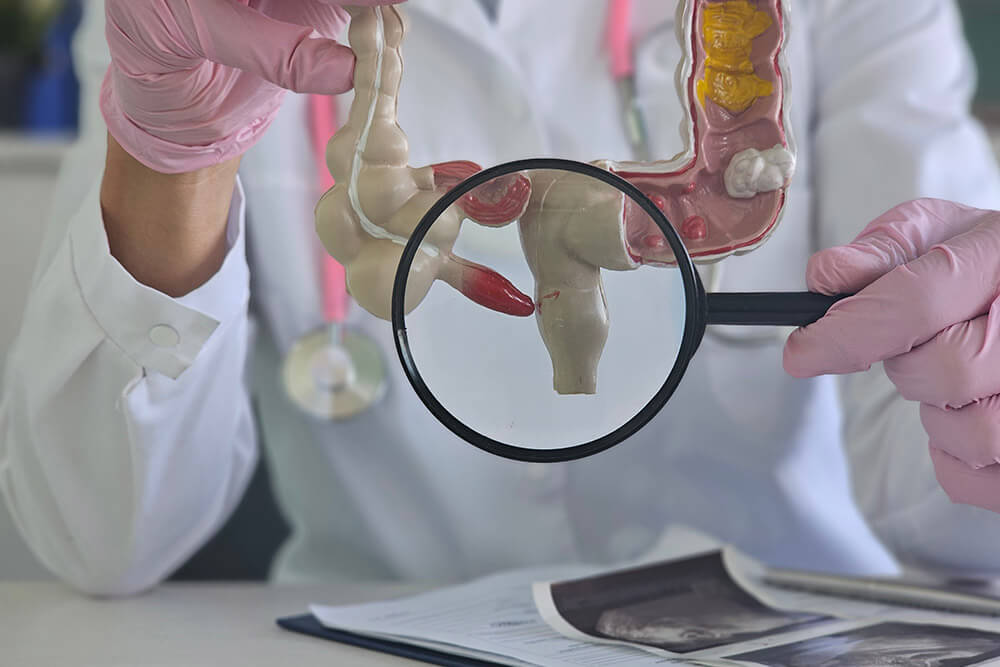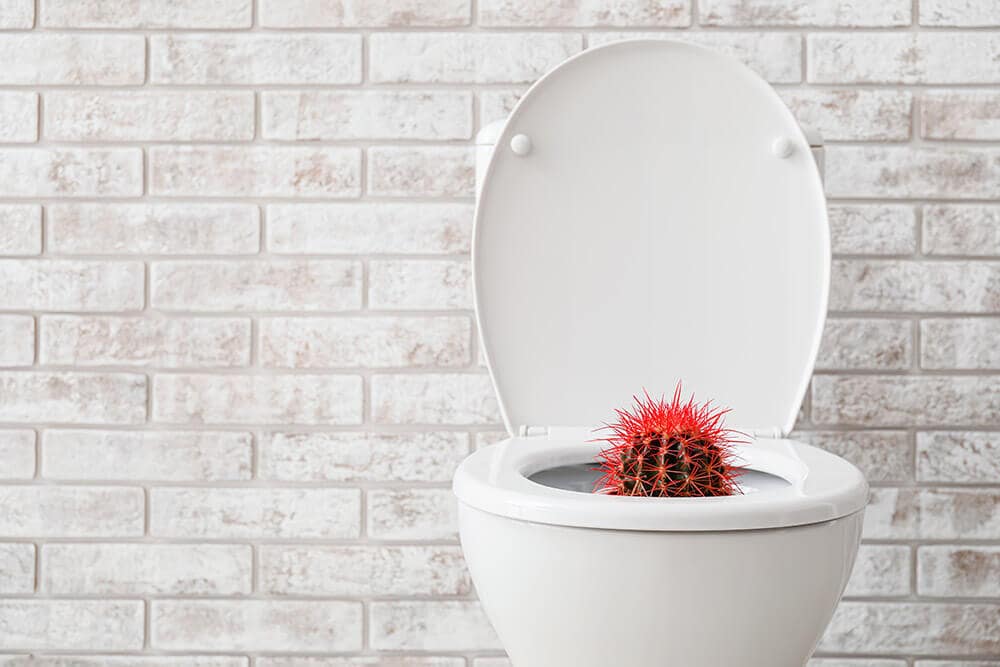What Is Intestinal Lymphangiectasia?
Intestinal lymphangiectasia is a disorder in which the lymphatic vessels of the small intestine become abnormally dilated.
As these enlarged vessels leak protein-rich fluid and lymph into the intestinal lumen, patients often develop swelling (edema), chronic diarrhea, and malnutrition.
(ICD-10 Code: K83.0)
Common Causes
- Primary (Congenital): Born with malformed or underdeveloped lymphatic vessels
- Secondary: Damage or obstruction from infections, tumors, or heart disease
- Genetic Disorders: Associated with inherited syndromes affecting lymphatic function
- Chronic Illness: Seen in adults with long-standing medical conditions
Common Symptoms
- Greasy, fatty (steatorrhea) or oily diarrhea
- Swelling of the legs, arms, or abdomen (peripheral and/or ascites)
- Unexplained weight loss and muscle wasting
- Persistent fatigue or low energy
- Low blood protein (hypoproteinemia) and vitamin deficiencies (A, D, E, K)
How Dr. Rishi Diagnoses Intestinal Lymphangiectasia?
Dr. Chadha follows a clear, step-by-step approach:
Health History & Physical Exam
Dr. Chadha reviews your symptoms, past medical history, family history, and any risk factors that might contribute to lymphatic leakage.
Blood Tests
Comprehensive blood panels check serum protein levels, albumin, lymphocyte counts, and fat-soluble vitamins (A, D, E, K) to assess malabsorption and malnutrition.
Stool Tests
Fat quantification in stool samples helps measure how much dietary fat you're losing, which is a hallmark of lymphatic leakage in the gut.
Endoscopy with Biopsy
An upper endoscopy (EGD) allows direct visualization of the small intestine. Biopsy samples from the intestinal lining confirm dilated lymphatic vessels under the microscope.
Advanced Imaging
- MR Enterography: Detailed MRI of the small bowel to locate and evaluate dilated lymphatic channels.
- Lymphangiography: Specialized imaging that maps the lymphatic system and pinpoints sites of leakage.
Frequently Asked Questions
What is intestinal lymphangiectasia?
Intestinal lymphangiectasia is a condition where the lymph vessels in your small intestine become too wide and leak protein and fluid into the gut, leading to swelling, diarrhea, and poor nutrition.
What causes it?
It may be congenital (you're born with abnormal lymph vessels) or secondary to infections, tumors, heart disease, genetic disorders, or other chronic illnesses.
What is the ICD-10 code?
The ICD-10 code for intestinal lymphangiectasia is K83.0.
Can adults get it?
Yes. While often congenital, adults can develop it secondary to infections, heart problems, tumors, or long-term diseases.
How is it diagnosed?
Dr. Chadha uses a combination of your medical history, blood tests (protein, vitamins, immune markers), stool fat analysis, endoscopy with biopsy, and imaging (MR enterography or lymphangiography).
How is it treated?
Treatment includes a low-fat diet with MCT oil, high-protein meals, fat-soluble vitamin supplements, medications like octreotide and diuretics, and advanced options such as endoscopic embolization or IV nutrition if needed.
What diet should I follow?
Eat a low-fat diet enriched with medium-chain triglyceride (MCT) oil, increase protein intake, and supplement with vitamins A, D, E, and K. A personalized plan is provided by our nutrition expert.
Can it become serious?
Yes. Without treatment, ongoing protein and fluid loss can cause severe swelling (edema), infections, malnutrition, and other complications.
Is treatment available in Houston?
Absolutely. Dr. Rishi Chadha at GastroDoxs in Houston specializes in diagnosing and treating intestinal lymphangiectasia, with on-site testing and imaging for rapid care.
When should I see a doctor?
If you experience persistent swelling of the legs, arms, or abdomen; chronic diarrhea (especially greasy or oily stools); unexplained weight loss; or signs of nutrient deficiency, schedule an appointment right away.











